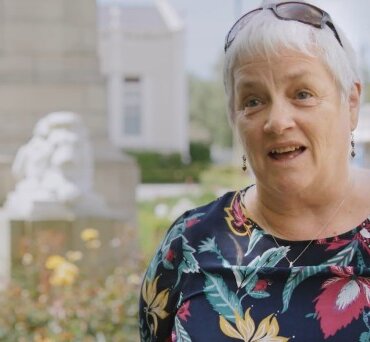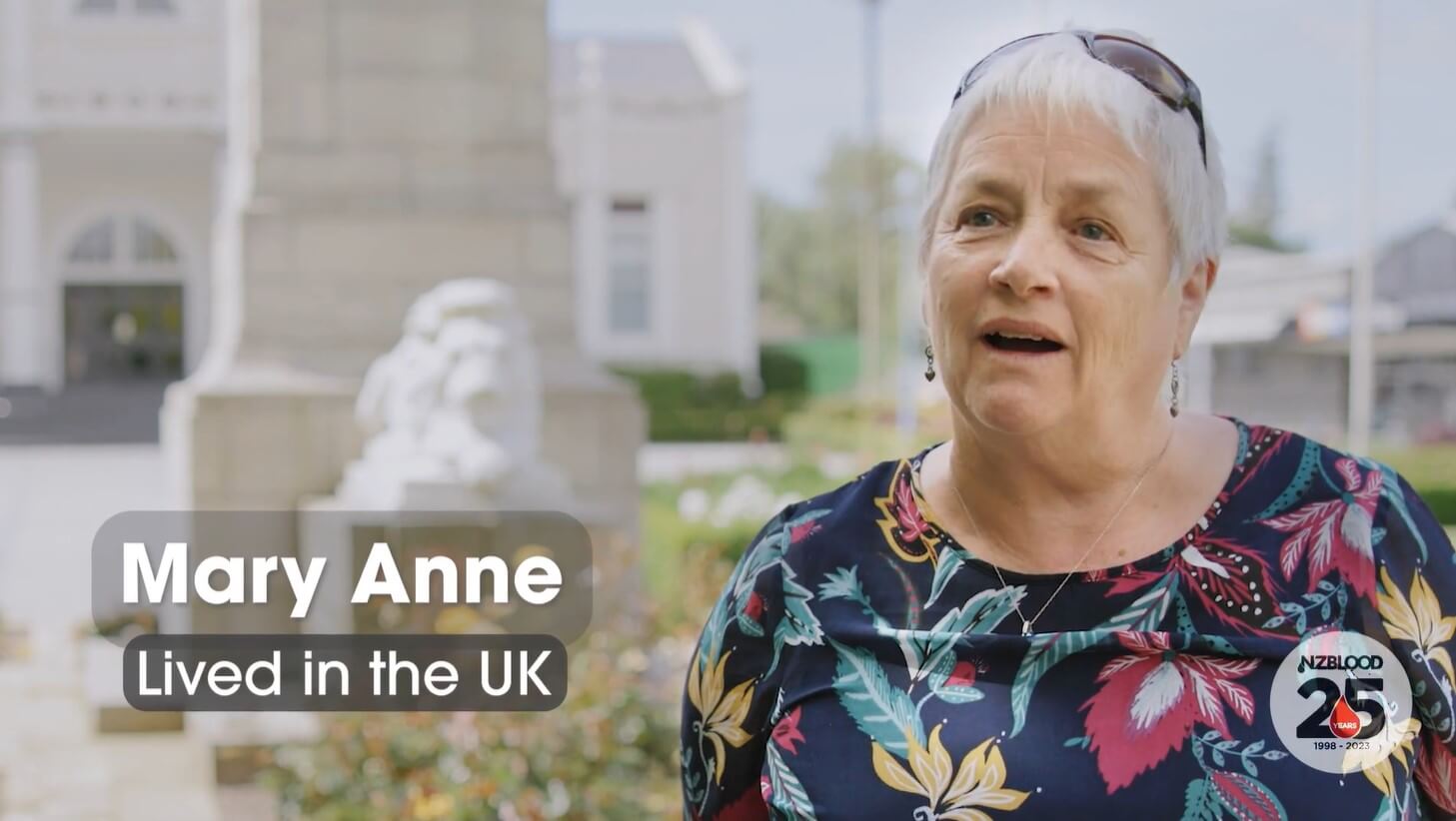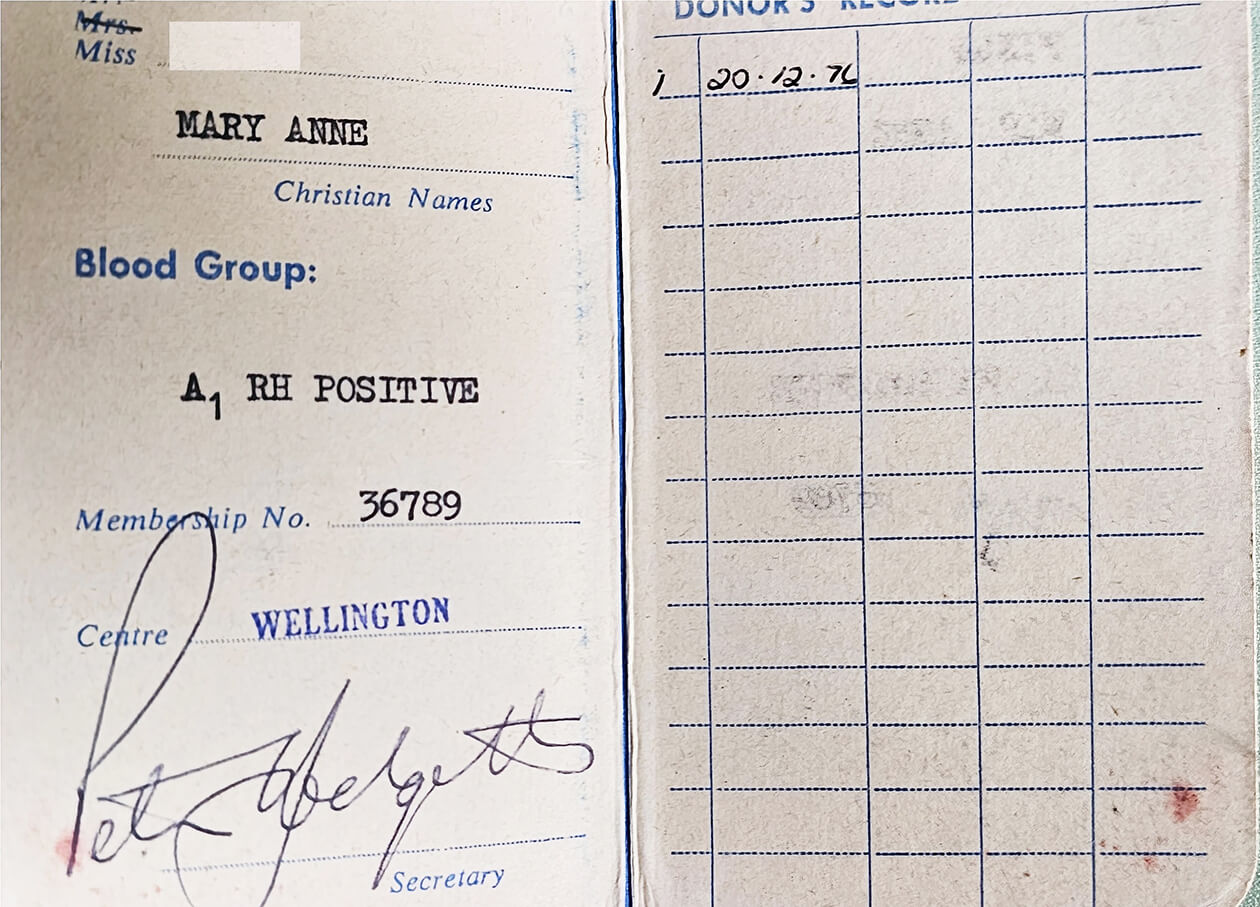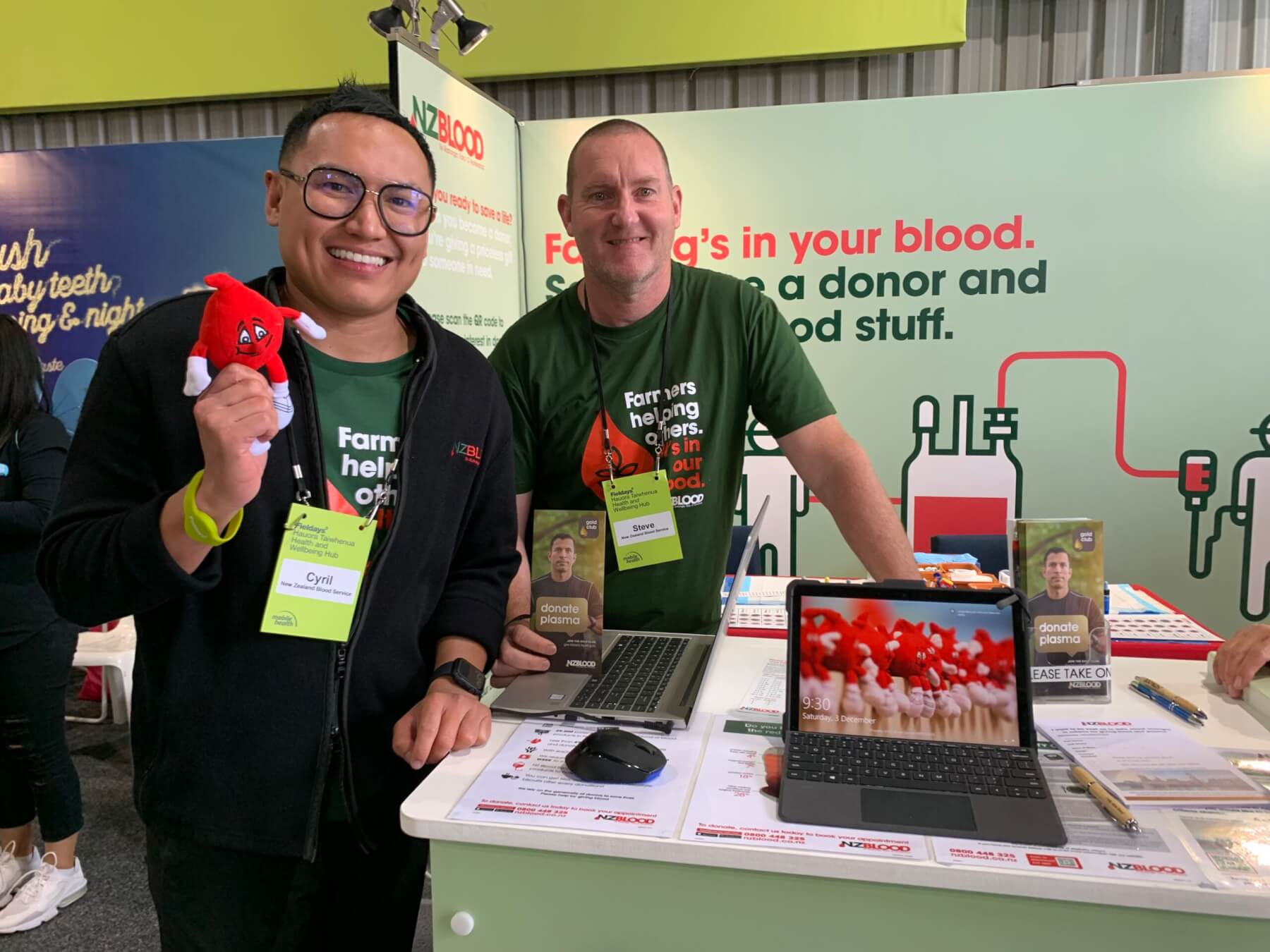
Mary Anne Gill
It has been years since The News’ senior writer Mary Anne Gill has given blood but sometime in the next few days, she will rectify that.
Gill was one of the many New Zealand residents who lived in the United Kingdom, France or Republic of Ireland between 1980 and 1996 for six months or more during the ‘mad cow disease’ outbreak.
They will all be finally able to donate blood or plasma from today (Thursday).
The restriction that prevented people donating was implemented in 2000.
The News revealed in 2022 the New Zealand Blood Service was considering changing the rule which was a precautionary measure amid concerns about the risk of acquiring human variant Creutzfeldt-Jakob Disease (also known as Mad Cow disease) via blood or plasma transfusions.
But it took another 24 months before last week’s announcement and Gill’s persistence in highlighting the change saw her feature in a New Zealand Blood Service video in front of the Cambridge Town Hall.

Mary Anne Gill features in a New Zealand Blood Service video announcing the end of the mad cow disease ban. Photo: NZ Blood Service.
“For years I’ve felt guilty about not being able to give blood here in New Zealand. The irony is I’m registered with the blood service in the UK and have given blood there when I’ve visited.”
The recommendation from the Blood Service to lift the restriction in New Zealand was approved by Medsafe following a review and detailed risk assessment.

Mary Anne Gill’s blood donor card from 47 years ago.
When it was lifted in other countries, there was an immediate increase in numbers, including Australia where numbers went up eight per cent.
With those previously impacted by the restriction finally being able to book an appointment to donate from today, they’ll first be encouraged to check their eligibility online.
“I’ve checked and I can so I can’t wait,” said Gill.
See: Bloody good news, we told you so!

The NZ Blood Service was in the Hauora Taiwhenua Health and Wellbeing Hub at Fieldays in 2022 and had some good news for those who lived for more than six months in the UK, France or the Republic of Ireland between 1980-1996 who have been unable to donate blood. They have been ineligible because of the UK epidemic of human variant Creutzfeldt-Jakob Disease (vCJD), also known as ‘’mad cow disease’’. Australia and the USA have done away with the eligibility criteria and now New Zealand is set to do the same from next year. Cyril Mateum, left, and Steve Dalgety were sharing the good news.








